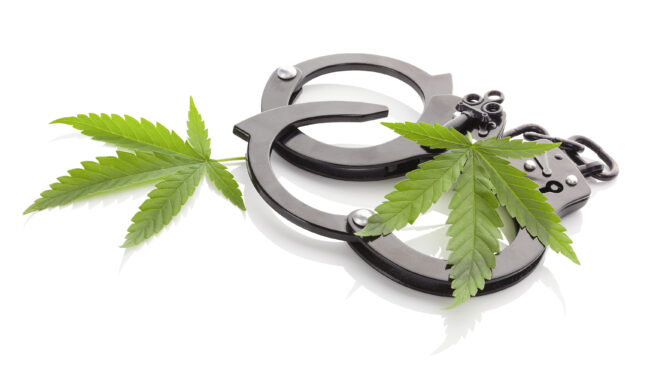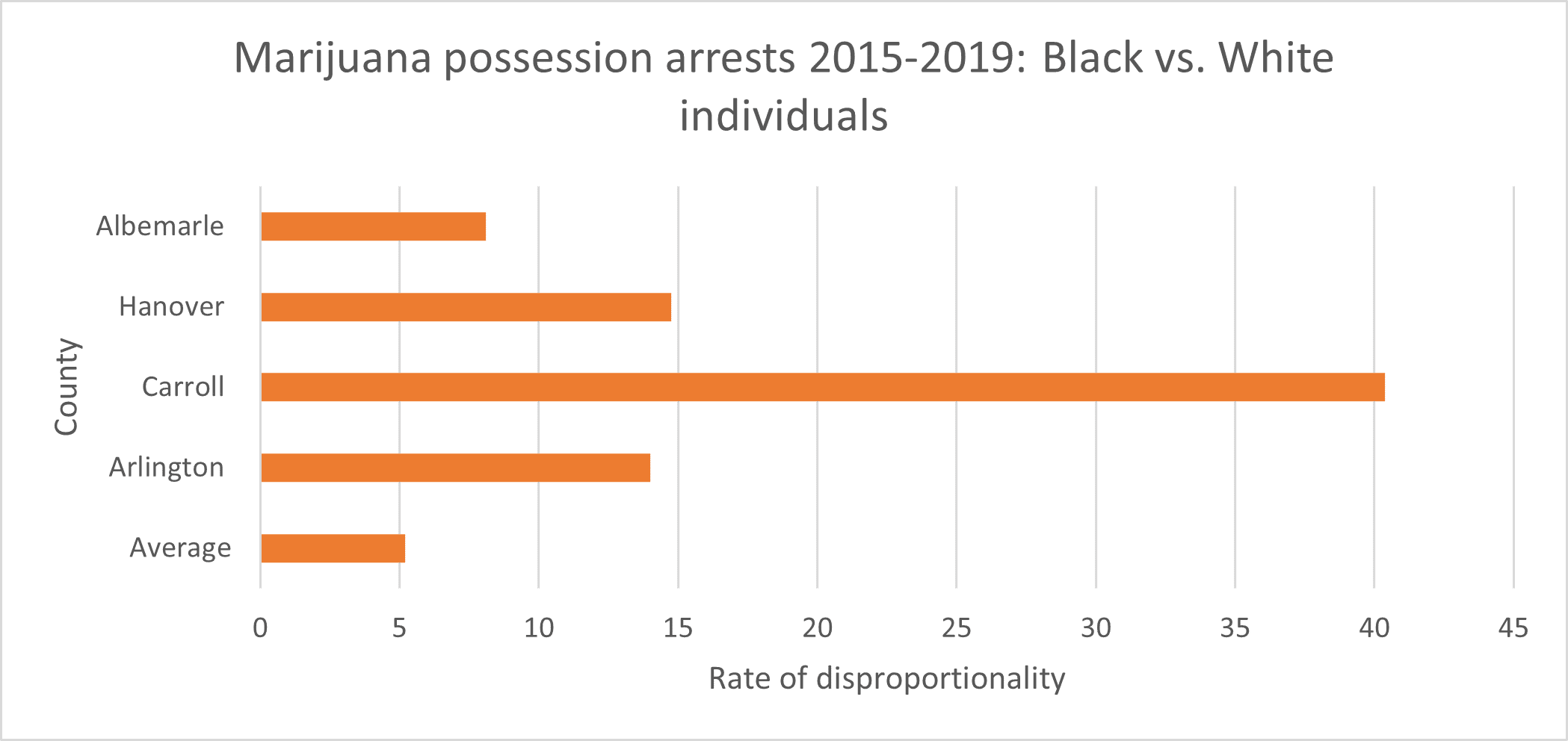For decades, drug laws and their selective enforcement have caused racial injustice in the United States. Protests and expressions of discontent in response to such injustice are unsurprising when there are still such clear criminal justice disparities between racial groups.
Black individuals in Virginia were five times more likely to be arrested than white individuals for marijuana possession between 2015 and 2019, according to the Virginia Joint Legislative Audit and Review Commission. The commission’s 2020 report found this recent five-year period was Virginia’s heaviest enforcement of marijuana possession laws in the state’s history and there was disproportionality not only in arrest rates but also in the likelihood of an arrest turning into a court proceeding.
The report also found that the likelihood of a black individual being arrested for marijuana possession was higher than a white individual in every single one of the state’s 88 localities (only those with sufficient data) measured in the report. The average Virginia locality had a disproportionality rate of five between black and white individuals.
However, enforcement within some localities showed far greater disparities. Albemarle, Hanover, and Arlington counties were all significantly higher than the average. Carroll County’s record was most disturbing: a black individual was 40.4 times more likely to be arrested for marijuana possession than a white individual. These examples can be seen in the chart below.
Discrimination can be seen not only in disparate arrest rates but also in how individuals’ cases are treated after an arrest has been made. Black people were more likely to have their cases advanced to court hearings in 83 Virginia localities. Black individuals in Wythe County were the worst off—they were 11.8 times more likely to have their arrest turn into a court case than a white individual.
These drug laws, arrest rates, and court case disparities are unjust and nonsensical. If they are not viewed as serious offenses worth pursuit by a prosecutor when the offender is white, then they should never be pursued at all in a liberal society that values equality before the law. Thankfully, Virginia is on the road to righting some of its historical wrongs. But tackling racism within drug law enforcement is not an easy task, nor a quick one.
This process has moved slowly in Virginia when compared to several other states. In 2015, a Virginia bill decriminalizing cannabis was rejected by the state legislature. Virginia’s bills that decriminalized the possession of small amounts of marijuana and expunge prior convictions finally passed in 2020 are an important step in the right direction.
Similarly, medical marijuana dispensaries did not appear in the state until 2018, and access to medical marijuana has remained difficult for many of the state’s patients in need. For example, in 2019, only 0.7 percent of licensed doctors in Virginia had registered to write medical cannabis recommendations.
Now, however, Virginia is poised to join the 15 states that have fully legalized marijuana for adult use, provided that lawmakers can resolve differences between various versions of a bill that passed each legislative chamber.
There are many reasons to pursue the legalization of marijuana, including freedom of choice for consenting adults, reducing the reach and harms of illegal drug markets and cartels, and curtailing youth use through a safe, regulated, age-restricted marketplace.
However, policymakers and citizens shouldn’t lose sight of the fact that the drug war was expressly motivated as a means to harass racial minorities and evidence shows it has often been used that way. It’s an affront to the very principles of our nation that such discrimination would be enshrined in law. These drug laws should never have been enacted, but it is positive to see Virginia seems set to join other states in repudiating the failed drug war and its illiberal legacy.


